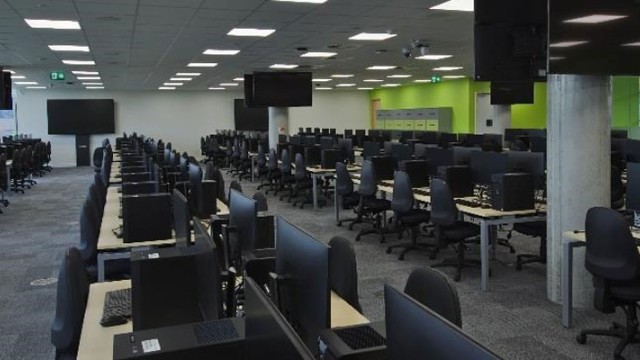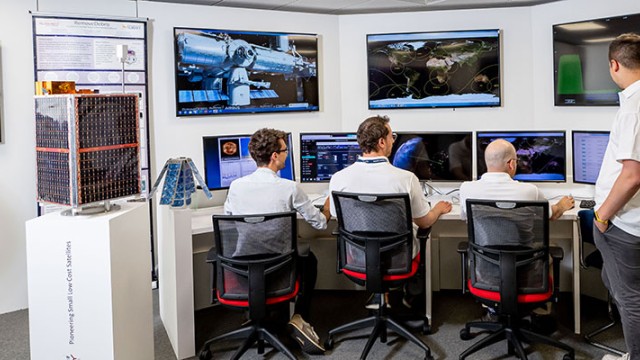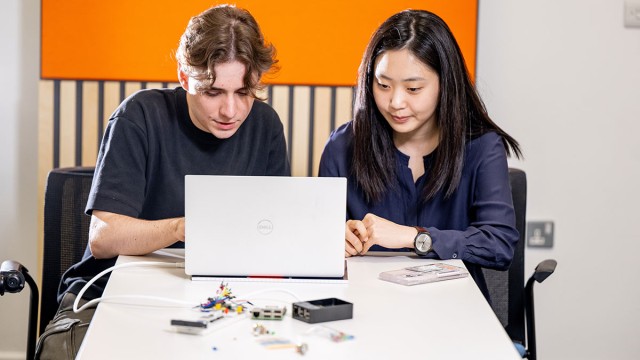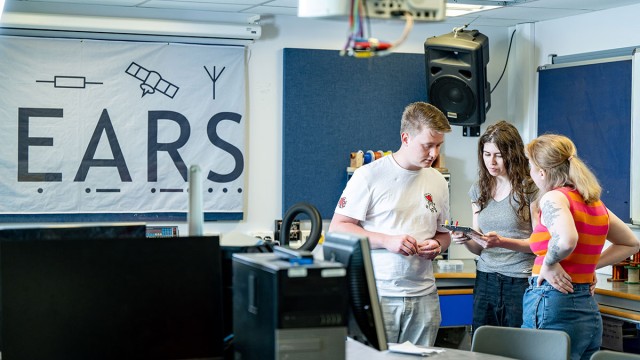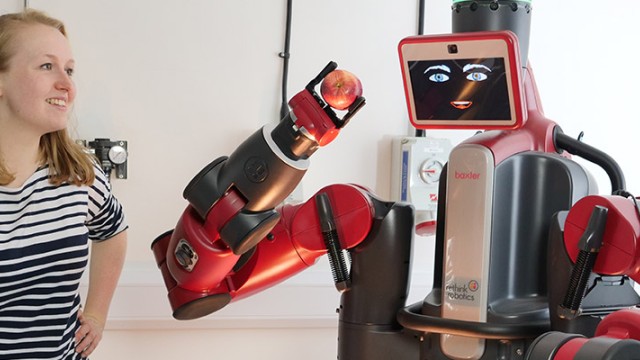
Facilities
To support our undergraduate and postgraduate courses in computer science and electronic engineering we have an extensive set of facilities which include state-of-the-art electronic labs, computer labs with specialised software, and innovative teaching aid tools and facilities. Each research centre has its own dedicated research facilities.
Common teaching facilities
Remote access
All the Linux labs can be accessed remotely using a web browser, giving students access to a full desktop remotely (ie. from home or their student accommodation) with all the applications available as if they were in the lab - or alternatively, direct RDP and SSH can be used. A similar facility is offered for Windows-based lab machines.
Free software
The majority of the software that we use as part of our degree is open-source (Eclipse, Java, Python, Linux) and hence free for students to download and use.
We also provide a range of other commercial software for which we have a site licence which students can download and use while they are studying for their degree, eg. Office365 (Word, Excel, PowerPoint, etc), SPSS, Matlab (note this list is not exhaustive and subject to change).
Study areas
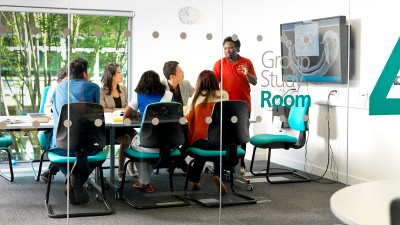
Our School has a common room available for students to use 24 hours a day, one of which is for quiet study. The University also has a wide range of study spaces with different facilities for our students.
Other computer labs
The University has a number of open access PC labs, with some available 24 hours a day when not being used for classes. These run typical desktop and word processing software on Microsoft Windows to support your studies, plus dedicated software for teaching, including programming languages.
We also have dedicated specialist Linux labs, available 24 hours a day, when not being used for classes. These run specialist software used on our degree courses including:
- Anaconda
- DEAP (evolutionary computation)
- Eclipse
- Git
- Jupyter notebooks
- Netbeans
- NSight on Linux (Ubuntu)
- PyTorch
- RStudio
- Scikit-learn
- Spyder (IDE).
We also have specialist desktop solutions for our postgraduate research students. This includes a range of development software, research packages and dedicated printing.
Our Otter lab has the following specifications:
| PCs | 112 |
|---|---|
| Description | Dell OptiPlex 7040 |
| Processor | 3.4 GHz |
| Memory | 16 GB |
| Graphics | Intel HD 530 |
| Screen | 22" 1920x1080 |
| Operating system | Ubuntu 22.04 LTS (Jammy Jellyfish) |
Makerspace facilities
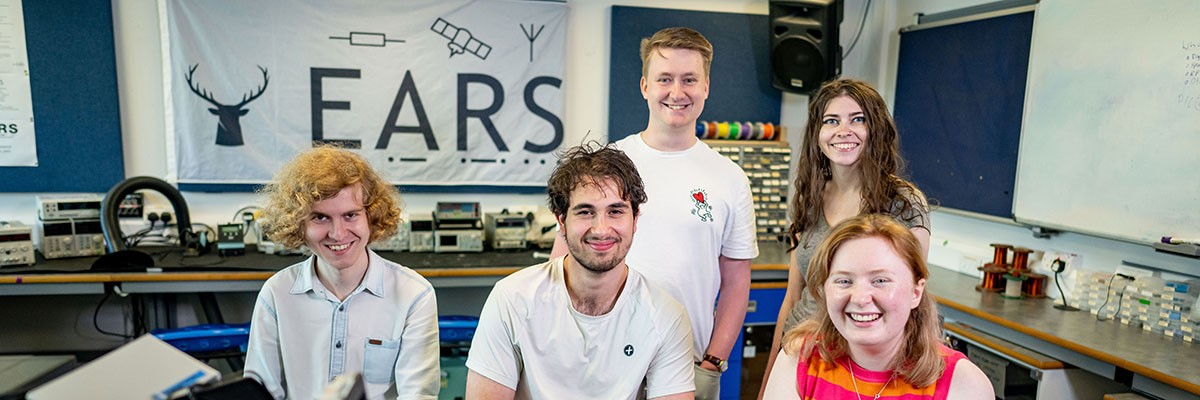
The Makerspace facility (18AB04) is a dedicated room for members of the Electronics and Amateur Radio Society (EARS), enabling students to work on their own personal projects or expand on previous experiments. It is available to students 24/7 once they have completed a health and safety training induction on how to use all the equipment inside the room.
The space is well-equipped with everything students might need including:
- 4-channel digital oscilloscopes
- Digital function generators
- Programmable power supplies
- Microcontroller programmers
- Soldering stations
- 3D printing facilities.
